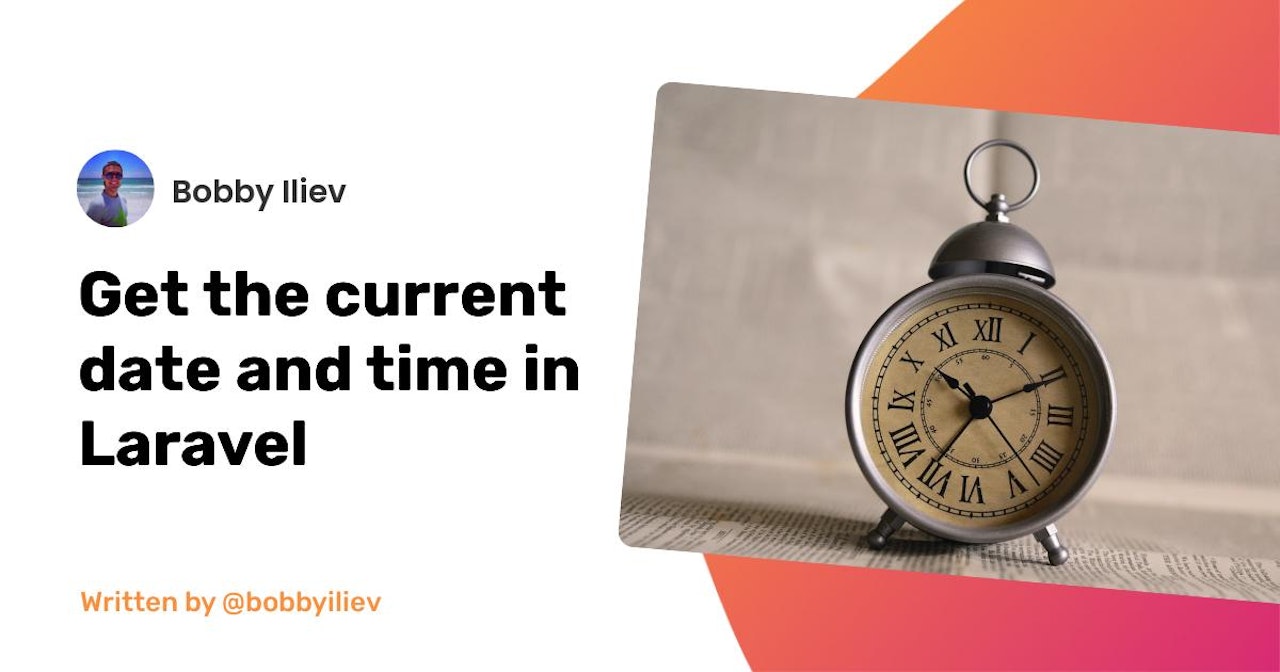Introduction
Working with date and time could be pretty challenging. Luckily we have the Carbon package that makes this super easy!
Carbon is a simple PHP API extension for DateTime. You can find more information about Carbon on their official website here.
Laravel also provides a lot of handy methods that you could use throughout your application.
In this tutorial, you will learn how to get the current date and time in Laravel!
Prerequisites
Before you start, you would need to have a Laravel application up and running.
I will be using a DigitalOcean Ubuntu Droplet for this demo. If you wish, you can use my affiliate code to get free $100 DigitalOcean credit to spin up your own servers!
If you do not have that yet, you can follow the steps from this tutorial on how to do that:
Or you could use this awesome script to do the installation:
Using Carbon to get the current date and time
As of the time being, Carbon comes included out of the box with all new Laravel applications.
 View Website
View Website
 View Website
View Website
 View Website
View Website
In order to include Carbon to a specific controller, for example, is to include this line:
<?php
use Carbon\Carbon;
Then you will be able to use all of the handy methods that Carbon provides.
The main method that we will cover is the now() method, and in order to use it you could do the following:
<?php
use Carbon\Carbon;
$currentTime = Carbon::now();
Now, if you were to use dd($currentTime), you would get the following output:
Carbon @1624629716 {#849 ▼
date: 2021-06-25 14:01:56.305923 UTC (+00:00)
}
To get this to a more human-readable format, you could use the toDateTimeString() method:
<?php
use Carbon\Carbon;
$currentTime = Carbon::now();
echo $currentTime->toDateTimeString();
Output:
"2021-06-25 14:04:25"
Or alternatively, you could convert this to an array:
$currentTime->toArray();
If you used dd($currentTime->toArray()); you would get the following output:
array:12 [▼
"year" => 2021
"month" => 6
"day" => 25
"dayOfWeek" => 5
"dayOfYear" => 176
"hour" => 14
"minute" => 14
"second" => 58
"micro" => 12380
"timestamp" => 1624630498
"formatted" => "2021-06-25 14:14:58"
"timezone" => CarbonTimeZone {#853 ▼
timezone: UTC (+00:00)
+"timezone_type": 3
+"timezone": "UTC"
}
]
In some cases, you might want to output the current date directly in your Blade template. Let's see how to easily do that!
Using the now() helper function
Laravel provides a nice helper function called now(), which creates a new Carbon instance.
You can call the now() helper function directly in your Blade view as follows:
<p>{{ now()->toDateTimeString() }}</p>
The output would be again as follows:
"2021-06-25 14:06:16"
If you wanted to get the time for a specific timezone, you could pass the timezone as a parameter to the now helper function:
now("Europe/Paris");
Conclusion
If you are just getting started with Laravel, make sure to check out this introduction course here:
If you want to learn more about PHP in general, make sure to check out this free PHP basics course here.
If you are working as a DevOps engineer, check out this DevOps Scorecard and evaluate your DevOps skills across 8 key areas and discover your strengths and growth opportunities



Comments (0)